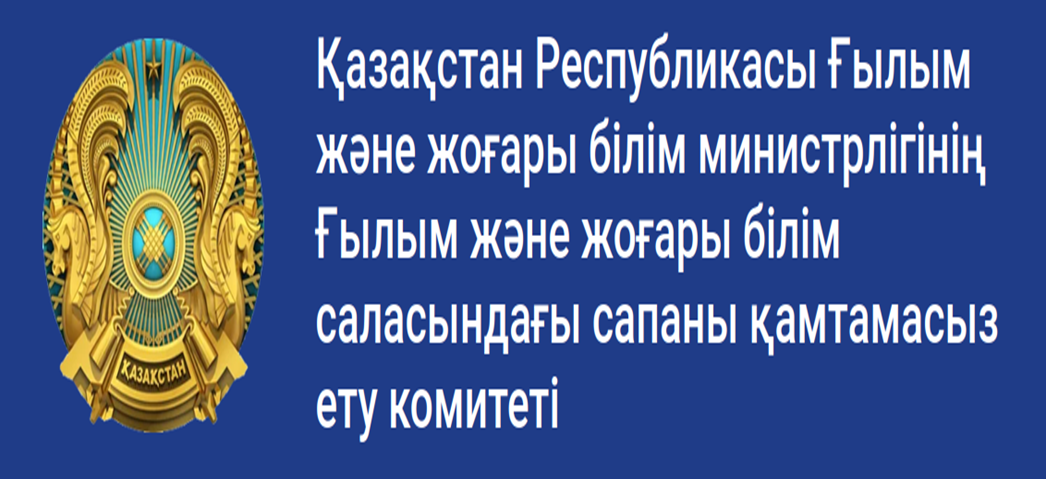Abylai’s Epistolary Legacy in the context of Kazakh-Russian political communication
Views: 238 / PDF downloads: 259
DOI:
https://doi.org/10.32523/2664-5157-2024-2-93-108Keywords:
Abylai, the Russian Empire, epistolary legacy, political communication, socio-economic issues, citizenship, tradeAbstract
The article presents an analysis of the epistolary legacy of Abylai Khan, a prominent Kazakh public and political figure of the XVIII century, through the prism of communication practices
between the political elite of the Middle Zhuz and the authorities of the Russian Empire. It is noted
that during this period, relations between the two states evolved from the formal-legal suzerainty of
the Russian Empire over the Kazakh Zhuzes to a state-political protectorate.
This gives reason to consider the authoritative communication of the Kazakh and Russian political
elites as interaction and mutual influence of fully-fledged actors. This interaction took various formats - negotiations, exchange of diplomatic missions, etc. However, in conditions of language barrier and
territorial remoteness from each other, the most intensive interaction was carried out through the
exchange of letters between Kazakh sultans and khans and the Russian Empire officials. Abylai Khan’s
epistolary legacy allows us to assert that he corresponded with empresses, members of the Board of Foreign Affairs, the governors-general of the Orenburg Region and Siberia, and the military elite of the Western Siberia military units.
Downloads
Reference
Абдилашим Д., 2024. Историческое значение письма-указа китайского императора
казахскому султану, сохранившегося в китайских архивах. Turkic Studies Journal. 1 (Т. 6). С. 7-22.
Абуев К.К., 2013. Абылай хан. Современники и наследники. Кокшетау: Әрекет. 308 с.
Аполлова Н.Г., 1960. Экономические и политические связи Казахстана с Россией в XVIII – начале XIX в. М.: Изд-во Акад. наук СССР. 456 с.
Басин В.Я., 1971. Россия и казахские ханства в XVI-XVIII вв. (Казахстан в системе внешней политики Российской империи). Алма-Ата: Наука. 275 с.
Васильев Д.В., 2014. Россия и Казахская степь: административная политика и статус окраины. XVIII – первая половина XIX века. М.: РОСПЭН. 471 с.
Валиханов Ч.Ч., 1984. Собрание сочинений в пяти томах. Т. 1. Алма-Ата: Наука. 324 с.
Ерофеева И. В., 1999. Хан Абулхаир: полководец, правитель, политик. Алматы: Санат. 334 с.
Касымбаев Ж.К., 1999. Абылай хан и проблемы казахской государственности (последняя
четверть XVIII в. по новым архивным данным) // Уроки отечественной истории и возрождение
казахстанского общества: материалы научной сессии ученых Министерства науки – Академии наук Республики Казахстан, посвященной Году народного единства и национальной истории, г. Алматы, 4 июля 1998 г. Алматы. С. 103-108.
Моисеев В.А., 1998. Россия и Джунгарское ханство в XVIII веке: Очерк внешнеполитических отношений. Барнаул: Изд-во АГУ. 175 с.
Сулейменов Б.С., Басин В.Я., 1981. Казахстан в составе России в XVIII – начале XX века.
Алма-Ата: Наука. 243 с.
Сулейменов Р.Б., Моисеев В.А., 1988. Из истории Казахстана XVIII века: (О внешней и
внутренней политике Аблая). Алма-Ата: Наука. 144 с.
Сухих О., 2005. Как «чужие» становятся «своими», или лексика включения Казахской степи в имперское пространство России. Вестник Евразии. 3. С. 10-11.
Русско-казахские отношения в XVIII-XIX вв., 1961. Алма-Ата: Наука. Т. 1. 533 с.
Русско-казахские отношения в XVIII-XIX вв., 1964. Алма-Ата: Наука. Т. 2. 573 с.
Эпистолярное наследие казахской правящей элиты (1675-1821 гг.), 2014. Алматы: АО «АБДИ Компани». Т. 1. 696 с.
Giddens A., 1984. The construction of society: outline of the theory of structuration. Сambridge: Polity.
Lysenko Yu.A., 2018. «Deputative missions» of The Kazakh khans, sultans and family governs in The court of the Russian emperors in The first half of The 19th century. Bylye gody. 50 (4). Pp. 1518-1529. DOI: https://doi.org/10.13187/bg.2018.4.1518


























